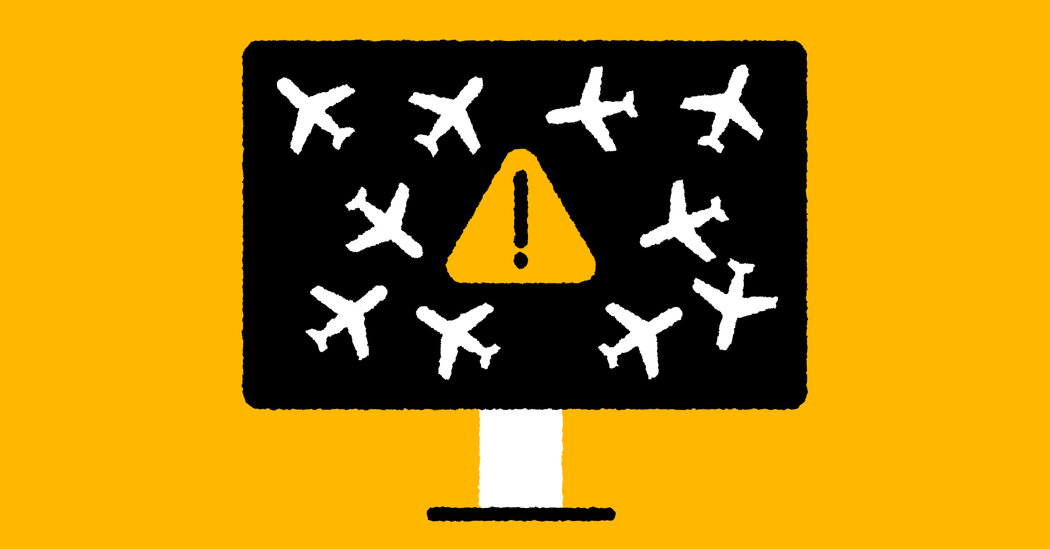How are you? (January 8-14)
System failure
On the heels of Southwest Airlines’ holiday travel collapse, a much broader systemic outage grounded planes last week. The source of the problem lay with the Federal Aviation Administration, whose system to warn pilots of safety issues went down on Wednesday. In all, the disruption caused more than 9,000 delays and 1,300 cancellations, stranding many passengers with no one to blame. The cause was a corrupted database file, the agency said, and the White House said there was no evidence of a cyberattack. But the system failure is nonetheless troubling and reveals the fragility of the infrastructure the country relies on to manage commercial air traffic. Critics say the FAA is struggling to keep up with technological advancements and the increase in flights and passengers. The air traffic chaos once again put Transportation Secretary Pete Buttigieg, who oversees the agency, in the hot seat. He said he was trying to determine “how this could have happened in the first place.”
Inflation is cooling down
To the relief of US households and policymakers in Washington, consumer prices – which were rising at a breakneck pace not so long ago – continue to cool. Annual inflation is slowing, according to the latest figures, with the consumer price index up 6.5 percent through December, up from 7.1 percent in November. That decline was largely due to falling prices for gasoline and airline tickets. A decline in commodity price inflation and moderation in rental costs this year could help reduce overall inflation. The report should be encouraging to Federal Reserve central bankers, who are starting to see clearer signs that their campaign to curb rising prices is having the desired effect — so they’re considering raising interest rates a quarter point at their February meeting instead. then perform another increment of one-half or three-quarters of a point.
Pink Briefs at Goldman Sachs
Last week, Goldman Sachs began one of its largest rounds of layoffs since the 2008 financial crisis. The bank plans to cut a total of 3,200 jobs, or about 6 percent of its workforce, as it grapples with a downturn in deal-making and slumping markets. And on Friday, it announced that its efforts to expand into consumer banking have led to $3 billion in losses since 2020. It’s far from the only Wall Street giant experiencing these challenges: JPMorgan Chase, the nation’s largest bank, reported that its fourth-quarter investment banking revenues fell 57 percent and said it had set aside $1 billion to prepare for to prepare for the possibility of a “mild recession”. Bank of America, Citigroup and Wells Fargo have also each set aside hundreds of millions of dollars to account for future loan losses. Goldman’s earnings, which will be announced this week, are likely to closely match those of its peers.
What’s next? (January 15-21)
Elon Musk’s trial over a tweet
Even before Elon Musk took over Twitter, he wasn’t known for his discretion on the platform. This week Mr. Musk is in court over a tweet he posted in August 2018 telling his millions of followers: “I am considering taking Tesla private for $420. Financing assured.” With that statement — which suggests a deal worth more than $70 billion — he sent shares of the electric vehicle company skyrocketing and ended up with $40 million in fines from the Securities and Exchange Commission. Shareholders have also sought their own recourse, filing a lawsuit seeking damages and accusing Mr. Musk and other current and former Tesla board members of stock manipulation. Mr Musk has said the tweet referred to a potential investment from the government of Saudi Arabia’s investment fund, but some familiar with the operation of the Saudi fund questioned those claims, and board members at Tesla were blindsided by the tweet from Mr Musk.

